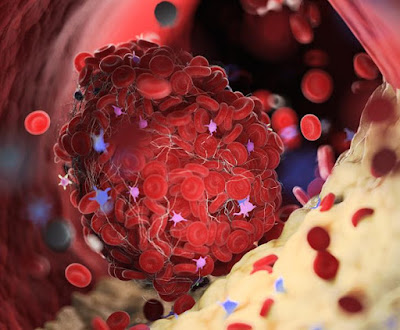Filenews 8 August 2021
A lipid now comes to be a possible biomarker that will answer whether someone will be asymptomatic or not, once they are found to be infected with coronavirus.
The finding comes from a retrospective study by the Medical University of South Carolina. The researchers discovered a specific and sensitive biomarker, sphingosine, in blood samples. Reduced levels of sphingosin, indicate the development of symptoms from infection. In contrast, elevated levels of the same lipid, as well as the protein involved in its production, acid ceramide (AC), are associated with asymptomatic infections.
The study was published in the scientific journal Scientific Reports, by the scientific team of Dr. Besim Ogretmen, Professor of Biochemistry and Molecular Biology, Director of Lipidomics Shared Resource at Hollings Cancer Center and head of the Research Program The Hollings Developmental Cancer Therapeutics Research. He explained that the study was conducted at the time when there was no vaccine yet, in an effort to give an answer to which of those exposed to the virus are symptomatic or asymptomatic. The Ogretmen laboratory has decades of experience in analysing the production and processing of different lipids, using a global measurement method called lipids. Using its know-how, the Ogretmen laboratory sought changes in sphingolipid levels.
Sphingolipids, is a class of molecules that are important for the integrity of the cell membrane and communication between cells, and help regulate inflammation and immune systems to respond to various infections.
The results of the study were impressive.
"Simply by looking at the data, you can clearly separate the different patient groups, even without doing technical statistical analyses," said Alhaji Janeh, lead author and graduate student in the Department of Biochemistry and Molecular Biology.
In asymptomatic patients tested positive for SARS-CoV-2 antibodies, the researchers found a slight increase in serum spongocin levels, compared to patients who were negative to the test. In fact, almost 75% of asymptomatic patients also had elevated levels of acid ceramidase.
In contrast, in patients who experienced COVID-19 symptoms, there was a 15-fold decrease in spongocin levels and acid ceramidase was not even detectable in most of them, as the presence of serum acid ceramidase is associated with increased levels of spongocin.
Ogretmen, questioning whether this is an alternative way to predict which patients are most vulnerable to serious illness, noted that "overall, using spongocin levels in the blood, there is a 99% chance that patients will develop symptoms of the disease correctly and who will remain asymptomatic."
The analysis of various lipids is an accurate method and requires sophisticated equipment, making this type of analysis prohibitive most of the time. However, the development of an ELISA-based test - such as those used to diagnose HIV infection - to detect levels of acid ceramidase could offer a cost-effective alternative that could be widely applied.
